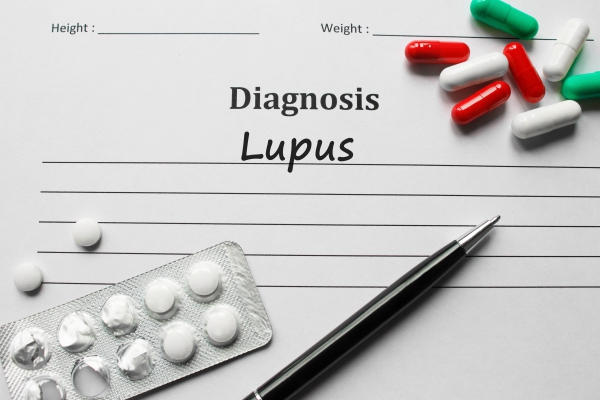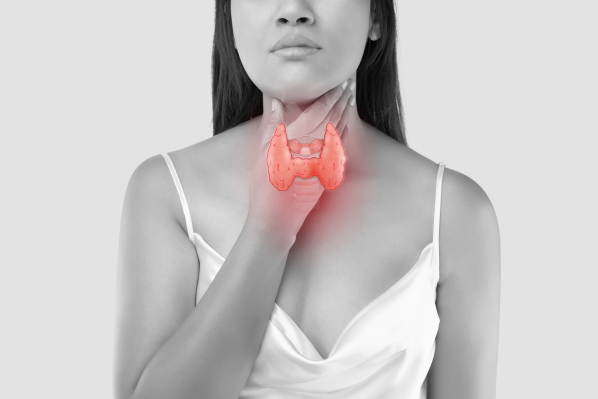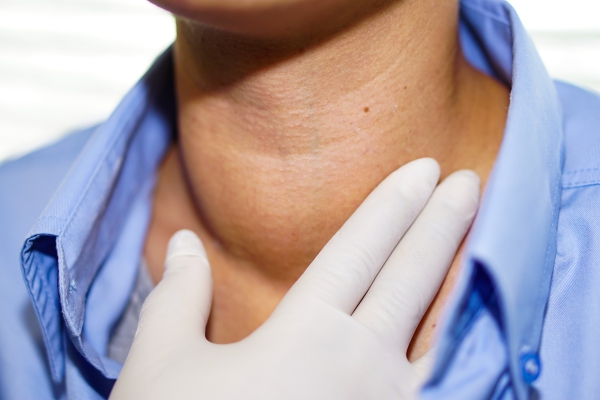What is Hashimoto’s disease?
Hashimoto’s disease is a condition that is characterized by destruction of your thyroid cells by your own immune system and forms part of the spectrum of autoimmune thyroid diseases. The thyroid gland is a gland located at the base of your neck, just below your Adam’s apple and is responsible for the production of hormones which coordinate many bodily functions. The inflammation of your thyroid gland from Hashimoto’s disease is also known as chronic lymphocytic thyroiditis and leads to an underproduction of thyroid hormones (an underactive thyroid gland or hypothyroidism).
Hashimoto’s disease is the most common cause of hypothyroidism in the United States in people above the age of 6 years. In addition, women are 10-15 times more at risk of developing this condition than men. Worldwide, the most common cause of hypothyroidism is iodine deficiency. However, Hashimoto’s disease is the most common cause of hypothyroidism in areas of adequate iodine intake. People aged between 30-50 years are at increased risk of developing the condition.
The treatment of Hashimoto’s disease is lifelong thyroid hormone replacement and the drug of choice is levothyroxine sodium which is administered orally.
What are the causes of Hashimoto’s disease?
Hashimoto’s disease is an autoimmune disorder- your own immune system produces antibodies that causes the destruction of your thyroid cells. Unfortunately, the exact cause as to why it happens is still unknown to doctors. The attack of the antibodies on your thyroid gland causes an inflammation of the latter which reduces its ability to produce thyroid hormones, leading to hypothyroidism.

What are the risk factors for Hashimoto’s disease?
There are several factors which may increase your risk of developing Hashimoto’s disease and these include:
- Age: This condition most commonly affects people aged between 30-50 years.
- Sex: Women are more commonly affected by the disease than men.
- Family history: Having a sibling or parent affected by Hashimoto’s disease increases your risk of developing the disease or other autoimmune disorders.
- Suffering from other autoimmune diseases: Suffering from autoimmune diseases such as lupus, diabetes type 1 or rheumatoid arthritis, increases your risk of developing Hashimoto’s disease.
- Exposure to radiation: Being exposed to excessive levels of environmental radiation increases your risk of developing Hashimoto’s disease.
What are the signs and symptoms of Hashimoto’s disease?
At first the signs and symptoms of Hashimoto’s disease may not be apparent or you may notice a swelling in front of your neck which is known as a goitre. This condition characteristically progresses slowly over years and causes chronic damage to your thyroid gland, leading to hypothyroidism. The signs and symptoms of Hashimoto’s disease mainly occurs due to the hypothyroidism and include:
- Constipation
- Dry skin
- Pale skin
- Fatigue
- Excessive sensitivity to cold
- Puffy face
- Hair loss
- Brittle nails
- Depression
- Memory problems
- Excessive menstrual bleeding
- Joint pain
- Muscle pain
- Unexplained weight loss or gain
- Swollen tongue
- Goitre
- Hoarseness of voice
- Decreased sweating
- Daytime somnolence


Making a diagnosis
To make a diagnosis, your doctor will take a detailed history from you to know more about your symptoms. After the history taking, your doctor will perform a thorough physical examination to look for signs of Hashimoto’s disease. To confirm the diagnosis, your doctor will order some tests and these include:
- Serum thyroid stimulating hormone (TSH) level: The TSH level is elevated in Hashimoto’s disease. TSH is produced by the pituitary gland to stimulate the thyroid gland in producing thyroid hormones.
- Serum T4 and T3 level: A decreased level of T3 and T4 in the presence of an elevated TSH level, point towards hypothyroidism.
- Thyroid autoantibodies: The presence of thyroid autoantibodies such as anti-TPO (thyroid peroxidase) and anti-Tg antibodies, confirm the cause of hypothyroidism as Hashimoto’s disease. However, they are absent in 10-15% of cases.

What are the treatments of Hashimoto’s disease?
The treatment of Hashimoto’s disease mainly comprises of observation and medications. In cases where the thyroid gland is functioning normally and there is no evidence of hormone deficiency, your doctor may choose to adopt a wait-and-see approach. Unfortunately if the use of medications is required, you will have to use it lifelong.
The medication used in the treatment of Hashimoto’s disease is synthetic thyroid hormone levothyroxine. This medication is taken orally and resolves all the signs and symptoms of Hashimoto’s disease.
In order for your doctor to determine the correct dosage of the medication, he/she will have to measure your level of TSH after 6-8 weeks of treatment, after which the dosage will be adjusted. After the optimum dosage of the medication is achieved, your doctor will measure your TSH level every 12 months as excessive intake of thyroid hormone may increase the rate of bone loss and affect your heart rhythm.
What are the complications of Hashimoto’s disease?
If Hashimoto’s disease is left untreated, the following complications may ensue:
- Goitre: As Hashimoto’s disease causes hypothyroidism, your body will constantly stimulate your thyroid gland to produce thyroid hormones which may result in an enlarged thyroid gland, also known as a goitre. It may just be a cosmetic inconvenience or affect your ability to swallow or breathe properly.
- Depression.
- Decreased libido in both men and women.
- Heart problems: Hashimoto’s disease is associated with an elevated of the bad cholesterol, low-density lipoprotein (LDL) which may result in an enlarged heart and eventually heart failure.
- Myxedema: Myxedema is a condition which occurs in severely advanced hypothyroidism. It is a life-threatening condition which causes signs and symptoms such as drowsiness, extreme lethargy and eventually loss of consciousness or coma. It may be triggered by an infection, sedatives or exposure to cold and requires immediate medical attention.
- Birth defects: Babies born to mothers with untreated hypothyroidism due to Hashimoto’s disease are at increased risk of having birth defects such as cleft palate or intellectual problems.

Expectations (prognosis)
The prognosis of Hashimoto’s disease is excellent if the diagnosis is made early and medications are taken properly. However, untreated myxedema coma is associated with a poor prognosis and a high mortality rate. Seeking medical advice early and taking the medications given by your doctor with great care will help to prevent complications and enable you to lead a normal life.

Source:
J. Alastair, I. and Simon, M., 2016. Davidson's Essentials of Medicine. 2nd ed. London: ELSEVIER.
Parveen, K. and Michael, C., 2017. Kumar & Clarks Clinical Medicine. 9th ed. The Netherlands: ELSEVIER.
Mincer DL, Jialal I. Thyroid, Hashimoto Thyroiditis. 2018 Jan.
Lee, S., 2020. Hashimoto thyroiditis.





